- Home
- Terry C. Johnston
Seize the Sky sotp-2 Page 9
Seize the Sky sotp-2 Read online
Page 9
I hope to begin another Galaxy article soon, if the spirit moves me. They seem thirsty for my words back east. Perhaps they’d enjoy my speeches? Look on my map and you will find our present location on the Yellowstone, about midway between Tongue River and the Big Horn.…
Reno’s scouting party has returned. They saw the trail and deserted camps of a village of three hundred and eighty lodges. The trail was about one week old. The scouts reported that they could have overtaken the village in one day and a half. I am now going to take up the trail where the scouting party turned back. I fear their failure to follow up the Indians has imperiled our plans by giving the village an intimation of our presence. Think of the valuable time lost!
But I feel hopeful of accomplishing great results. I will move directly up the valley of the Rosebud. General Gibbon’s command and General Terry, with steamer, will proceed up the Big Horn as far as the boat can go.
I will like campaigning with pack mules much better than with wagons, leaving out the question of luxuries. We take no tents and desire none.
I now have some Crow scouts with me, as they are familiar with the country. They are magnificent-looking men, so much handsomer and more Indian-like than any we have ever seen, and so jolly and sportive; nothing of the gloomy, silent red man about them. They have formally given themselves to me, after the usual talk. In their speech they said they had heard that I never abandoned a trail; that when my food gave out, I ate a mule. That was the kind of man they wanted to fight under; they are willing to eat mule too.
I am sending six Ree scouts to Powder River with the mail; from there it will go with other scouts to Fort Buford.
From here on out the men will sleep in overcoats and saddle blankets. I have arranged for the hounds to be left with the mules when battle is assured. At the very least John can care for them in my absence. Tuck is such a problem tonight. She is in and out, dashing out with a playful yip when a wolf howls, scurrying back in with her tail fast between her legs to cower at my knee. Let us hope the Sioux are as discerning as Tuck … to know when to stick their tails between their legs!
I also wanted you to share in the good news—I have seen that Boston and Autie were transferred from Quartermaster Corps for the next fifteen days so they can accompany us on our scout up the Rosebud. Along with Tom, Boston, Autie, James, and Fred Calhoun, I want all the Custer clan in on the fun! We have such a dear, dear family gathered round us, Libbie. We are indeed fortunate in this life to share that family together.…
To the end, Custers all!
His pen fell silent above the page as he grew pensive again. Listening to the wolf howl … seeing her dark eyes conjured up before him on the tent wall once more. He clenched his eyes, trying to block out the vision. Still they haunted him. Dark black-cherry eyes gleaming out at him from the back of that wagon as it rumbled out of Fort Hays, heading south and out of his life.
Less than fifty yards downstream stood Mark Kellogg’s tent where the late-night oil burned just as brightly as Custer’s lamps.
Although both Sherman and Sheridan had warned him against taking any reporters along, Custer found it impossible to refuse that fervent request from the former telegraph operator working for the summer in a Bismarck law office and writing an occasional article printed in the Bismarck paper, even the New York Herald, under his pen name, Frontier.
After all, Custer had reasoned, the Herald was owned by his good and politically powerful friend, James Gordon Bennett, Jr. Without much time given over to wrestling with the problem, Custer had decided to allow Kellogg to accompany the campaign. Besides, why shouldn’t Bennett’s paper get the scoop on everyone else when he defeated the Sioux and became the darling of the Democractic convention about to meet in St. Louis?
Kellogg was a likable fellow, sharing much in common with Custer anyway. He favored a get-tough policy with the “noncompliers,” those Indians refusing to come in to their reservations. Custer was sure Kellogg would write a favorable account of the coming battle, since there had been so much concern after the Washita debacle and how aspects of that winter’s campaign had been manhandled in the press. After all, Kellogg had stated publicly, “I say turn the dogs of war loose and drive the savages off the face of the earth, if they do not behave themselves.”
A widower with two girls, who smoked Bull Durham, and enjoyed a rare game of chess, the reporter had once preached a temperance lecture at the graveside interment of a drunk who died of consumption. Since he shared Custer’s teetotaling habits when it came to whiskey and other spirits, Kellogg was not among those who bolstered trader Coleman’s profits that cloudy night of 21 June.
Instead, Mark Kellogg spent the evening rattling off dispatches to be sent back east in the morning in addition to letters to his daughters. The remainder of his time he spent in getting rations and supplies squared away and stuffed securely in his canvas saddlebags, along with an adequate supply of lined paper and pencils he would require up the Rosebud with Custer.
At forty Kellogg was nonetheless youthful in appearance, with but a few small crows’-feet worrying his eyes in addition to the steel-rimmed glasses, and some flecks of gray in his hair that betrayed his age.
Mark brooded needlessly past midnight, concerned that he would have enough bacon and sugar and coffee for the fifteen days, as well as enough paper. More important than food was paper. Kellogg wanted to write the war story to end all war stories. And by riding with an Indian fighter of Custer’s caliber and reputation, Kellogg was certain he would see action worth description. Never before had he written anything worthy of much notice, since most of his prose plodded along in a pedestrian manner.
This time, however, Mark Kellogg was certain the drama of the coming chase and the thrill of battle with Custer’s cornered quarry would inspire him to lofty prose.
This small, unassuming widower would ride an army mule south along the Rosebud behind Custer, certain this was to be his moment in the spotlight. No longer would he merely report the actions of others. At long last Mark Kellogg, reporter and campaign correspondent for no less than the New York Herald, would participate in the making of history—a destiny he had waited forty long years to enjoy.
That old mule picketed outside his tent just might carry him farther than the Rosebud and any Sioux camp Custer would assure they would run across.
Well past midnight John Burkman left Custer at his field desk, perched on his cot, finished with his letter to Libbie, and now working on his journal. Always the journal.
The striker headed next door to his small A-tent, with a stop to relieve his bladder swollen from all the coffee he had shared with his commander.
As he watered the ground, Burkman gazed at the lights glittering on board the Far West moored against the far shore and remembered that some of the officers from Terry’s command had rowed across to join Gibbon’s men for a late-night game of monte. For a moment he sensed those soldiers were the lucky ones, not having to suffer this unexplained dread for the coming of day, not having to worry over the noose of despair that his own private premonitions tightened around his heavy heart.
Burkman stuffed himself back in his britches and wiped his hand off on army wool before he nudged the buttons back through their holes. Here in the chill wee hours, all he heard was the sound of Custer’s two horses munching dried grass at their picket pins.
That, and the steady beat of the Crow and Ree drums. Burkman was sure it was the distant beat of those drums that helped him fall asleep that last night at the Yellowstone.
The distant beat of Indian drums.
CHAPTER 7
HEADQUARTERS DEPARTMENT OF DAKOTA
(IN THE FIELD)
Camp at Mouth of Rosebud River, Montana,
22 June 1876
Colonel:
The brigadier general commanding directs that as soon as your regiment can be made ready for the march, you proceed up the Rosebud in pursuit of the Indians whose trail was discovered by Major Reno, a few days since. It i
s, of course, impossible to give you any definite instructions in regard to this movement; and were it not impossible to do so, the department commander places too much confidence in your zeal, energy, and ability to wish to impose upon you precise orders, which might hamper your action when nearly in contact with the enemy. He will, however, indicate to you his own views of what your action should be, and he desires that you should conform to them unless you shall see sufficient reason for departing from them. He thinks that you should proceed up the Rosebud until you ascertain definitely the direction in which the trail above spoken of leads. Should it be found (as it appears to be almost certain that it will be found) to turn toward the Little Horn, he thinks that you should still proceed southward, perhaps as far as the headwaters of the Tongue, and then turn toward the Little Horn, feeling constantly, however, to your left, so as to preclude the possibility of the escape of the Indians to the south or southeast by passing around your left flank.
The column of Colonel Gibbon is now in motion for the mouth of the Big Horn. As soon as it reaches that point, it will cross the Yellowstone and move up at least as far as the forks of the Little and Big Horns. Of course its future movements must be controlled by circumstances as they arise; but it is hoped that the Indians, if upon the Little Horn, may be so nearly enclosed by the two columns that their escape will be impossible. The department commander desires that on your way up the Rosebud, you should thoroughly examine the upper part of Tullock’s Creek; and that you should endeavor to send a scout through to Colonel Gibbon’s column with information of the result of your examination. The lower part of this creek will be examined by a detachment from Colonel Gibbon’s command.
The supply steamer will be pushed up the Big Horn as far as the forks, if the river is found to be navigable for that distance; and the department commander (who will accompany the column of Colonel Gibbon) desires you to report to him there not later than the expiration of the time for which your troops are rationed, unless in the meantime you receive further orders.
Very respectfully, your obedient servant,
Ed. W. Smith, Captain
Eighteenth Infantry, A.A.A.G.
Lieutenant Colonel G. A. Custer, Seventh Cavalry
“As soon as my regiment can be made ready to march!” Custer exclaimed, rattling the paper whereon Captain Smith had written General Terry’s orders for the Seventh to scout up the Rosebud for the hostile Sioux. “By jove, we’ll be ready before Gibbon’s swallowed his lunch!”
Burkman was relieved to see Custer so jovial. Several hours ago the striker and the adjutant crept into the regiment commander’s tent as those first purple gray streaks of dawn lit up the Yellowstone Valley, hoping to awaken the general, finding Custer sitting upright on his cot, his field desk still perched atop his lap and the pen clutched fiercely in his freckled hand—fast asleep. Burkman had attempted to remove both pen and Custer’s letter to Libbie in hopes of nudging the general down on his bed for some decent rest, but Custer awoke instead, greeting them both.
“Balderdash, John!” he roared, standing and stretching. “I feel marvelous, more than rested—I’m invigorated!”
By midmorning adjutant W. W. Cooke had returned, the folded orders in a waving hand, a smile cutting his face wolfishly. Tuck loped through the tent flaps at that moment, tongue lolling, ears flopping, placing her massive head on her master’s lap for a morning rub.
“Good day, Cooke!” Custer bellowed as he scratched the hound.
“A great one it is, General!”
“Is that what I think it is?” Custer asked impatiently.
“It is indeed, sir—Terry’s orders. We’re on our way now!”
Custer tore open the orders, his eyes dancing across the words every bit as fast as they had sailed across General Philip Sheridan’s momentous telegram bringing Custer back to duty with the Seventh Cavalry for that winter campaign down in the Indian Territories.
“Cookey, go to Terry’s headquarters across the river. Give him my compliments and my sincerest thanks for the issuance of his orders for the march. Tell him I expect to have my regiment ready sometime between late morning and early afternoon. And be certain to inquire if the general would care to review the troops.”
Cooke saluted sharply and left.
“Are both horses ready, Mr. Burkman?”
“Yes, General. Just the way you like them, brushed and glossy. Farrier came over at my request and trimmed ’em both this morning for you. Saddle’s soaped and polished.”
“My standard?”
“That too.” Burkman pointed to the bright crimson-and-blue swallowtail guidon in the corner shadows of the tent. “Ready for your bearer.”
“Good, Striker.” He clapped his hands together characteristically. “I do believe I’ll dash off a few more lines to Libbie before I get myself too absorbed in other details and find I can’t do what I promised her. See that our mess utensils are stored aboard a mule, in addition to enough paper and pencils for me to use over the next long haul of it.”
After Burkman had turned away to busy himself with his chores, Custer plopped on his cot with a sigh and took the pen in hand once again.
22 June—11 A.M.
I have but a few minutes to write, as we move at twelve, and I have my hands full of preparations for the scout. Do not be anxious about me. You would be surprised to know how closely I obey your instructions about keeping with the column. I hope to have a good report to send you by the next mail. A success will start us all towards Lincoln.
I send you an extract from General Terry’s order, knowing how keenly you appreciate words of commendation and confidence.
Come the historic conclusion of this action against the Sioux, I will have much to tell you, and we will have much to talk about. I want you to think about the whirlwind social life of Washington City, where you will bloom, and all that condition will offer someone of your upbringing and education, Dear Heart.
There is so much on my mind at this point, I will have to wait in sorting it through till next I write. Until then, know that I have loved you … and always will, Libbie. The door is at last flung open for us both!
Your devoted boy,
Autie
Mark Kellogg could not remember ever feeling quite this way. The throbbing pulse of excitement that beat through camp was more than contagious. Finding himself part of this great procession would be downright humbling if it weren’t so damned exciting. Everywhere he looked, Mark watched the frantic bustle of men and animals, guns and guidons—a camp vibrating with an electric energy here on the plains of the Yellowstone.
With twelve mules assigned for each of the twelve companies, including some additional animals assigned to General Custer’s headquarters’ command and Lieutenant Varnum’s scouts, a pool totaling one hundred sixty mules had been selected from the wagon-train stock that plodded this far from Fort Abraham Lincoln.
The ammunition that Custer had specified must be carried by each company was packed in aparejos or leather packsaddles, not the conventional sawbucks most often used by mule teams. In addition, the rations for fifteen days had been assigned each soldier. His daily ration would consist of eight ounces of hardtack, a hard cracker some four inches square and dry as these summer plains of Montana Territory. In addition, there was three-quarters of a pound in salt pork and a pint of army coffee to wash it all down—rations that included that extra salt in the event they had to sacrifice some worn-out mules to the evening mess fires on a long and costly chase.
Once the rations were drawn and packed, most of the company captains went back to double-check the ammunition. Only then did the company sergeants inspect each soldier’s saddle gear: nose bag, an extra fore and hind shoe with nails, and some twelve pounds of oats tied in a grain bag to each saddle. A haversack was lashed behind each trooper’s McClellan saddle, itself swabbed with a fresh coat of oil and lampblack to prevent the rawhide from cracking in the dry, arid air of the northern plains. Beneath the McClellan sat the thic
k indigo blue wool saddle blanket sporting its gold border. As they had down through the ages, taciturn veterans watched over the great number of raw recruits like anxious mother hens, assuring that the green troopers packed an additional halter, picket rope, and pin in their haversacks.
By this time of the morning most of Custer’s soldiers had made their last trip across the Yellowstone to visit trader Coleman’s prairie store. With what little money they had kept back for themselves, some of the troopers purchased the large, floppy Hardee hats that would keep the blazing sun off their faces and necks much better than the standard-issue kepi, or forage cap. Many of the old files preferred instead the slouch style they purchased for $2.50, or even the popular manila straw hat they took off the sutler’s hands for a mere fifty cents. With the purchase of an additional bandanna or two, which a soldier could use to keep the dust from crusting his nose and mouth, his list of necessities just might be complete.
Now each young trooper would gaze longingly at what he had left in the way of spare change spread across a callused, dirty palm. Most decided to spend the bank on luxuries such as chewing tobacco, cigars, salves for cracked lips or wind-blistered cheeks, raisins, or some hard candy for a sweet tooth. Even a few of the shavetails bought themselves one of the checkered hickory shirts or a pair of lightweight overalls, both immensely more comfortable than standard army issue for a summer march across Montana Territory.
With what Kellogg had learned, it appeared on this trip there would be more than the usual share of shavetails riding up the Rosebud behind Custer, that being the popular army term for a new or green recruit, since the newly purchased army mules had their tails cropped straight away.
As the regiment finished its preparation to march into history, raw youngsters accounted for much of the Seventh’s manpower, though most of Custer’s officers had gained battlefield experience in the Civil War. While the fact that most of the rank and file had little battle experience was no real cause for concern in this frontier army, the fact that from thirty to sixty percent of some companies were shavetails with less than six months service under their belts could give any veteran fighting man pause when going against battle-hardened Sioux warriors.

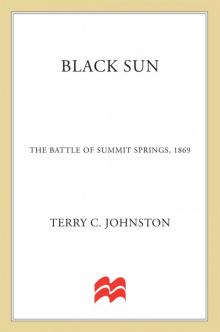 Black Sun, The Battle of Summit Springs, 1869
Black Sun, The Battle of Summit Springs, 1869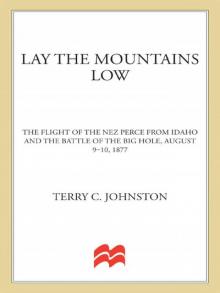 Lay the Mountains Low
Lay the Mountains Low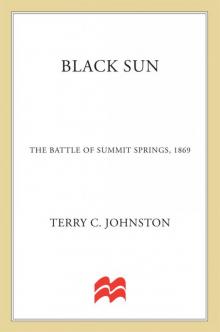 Black Sun: The Battle of Summit Springs, 1869 (The Plainsmen Series)
Black Sun: The Battle of Summit Springs, 1869 (The Plainsmen Series)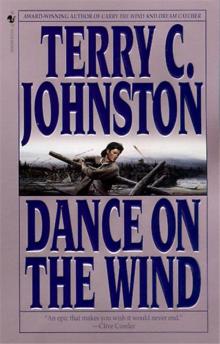 Dance on the Wind tb-1
Dance on the Wind tb-1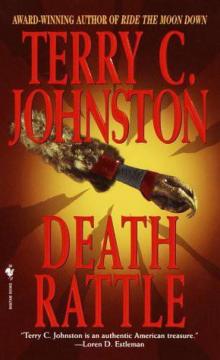 Death Rattle tb-8
Death Rattle tb-8 The Stalkers
The Stalkers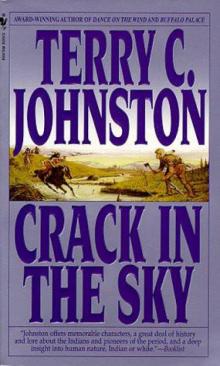 Crack in the Sky tb-3
Crack in the Sky tb-3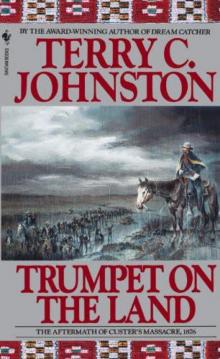 Trumpet on the Land: The Aftermath of Custer's Massacre, 1876 tp-10
Trumpet on the Land: The Aftermath of Custer's Massacre, 1876 tp-10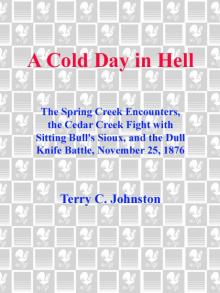 A Cold Day in Hell
A Cold Day in Hell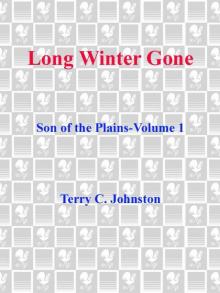 Long Winter Gone: Son of the Plains - Volume 1
Long Winter Gone: Son of the Plains - Volume 1 Buffalo Palace
Buffalo Palace Cries from the Earth
Cries from the Earth Death Rattle
Death Rattle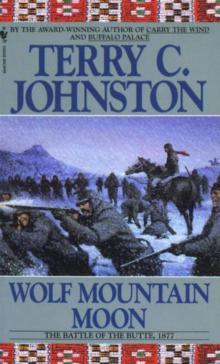 Wolf Mountain Moon: The Battle of the Butte, 1877 tp-12
Wolf Mountain Moon: The Battle of the Butte, 1877 tp-12 Crack in the Sky
Crack in the Sky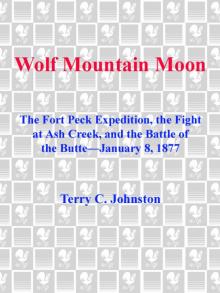 Wolf Mountain Moon
Wolf Mountain Moon Turn the Stars Upside Down: The Last Days and Tragic Death of Crazy Horse
Turn the Stars Upside Down: The Last Days and Tragic Death of Crazy Horse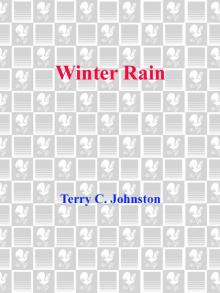 Winter Rain
Winter Rain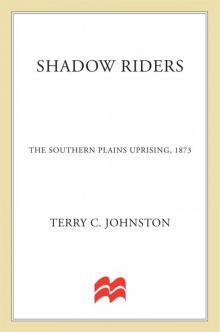 Shadow Riders: The Southern Plains Uprising, 1873 (The Plainsmen Series)
Shadow Riders: The Southern Plains Uprising, 1873 (The Plainsmen Series)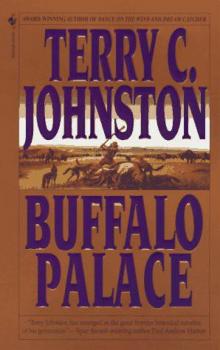 Buffalo Palace tb-2
Buffalo Palace tb-2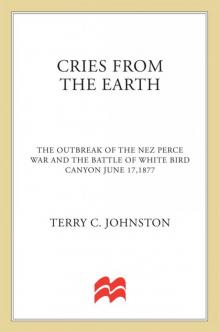 Cries from the Earth: The Outbreak Of the Nez Perce War and the Battle of White Bird Canyon June 17, 1877 (The Plainsmen Series)
Cries from the Earth: The Outbreak Of the Nez Perce War and the Battle of White Bird Canyon June 17, 1877 (The Plainsmen Series)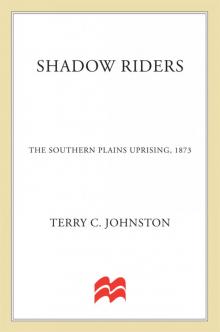 Shadow Riders, The Southern Plains Uprising, 1873
Shadow Riders, The Southern Plains Uprising, 1873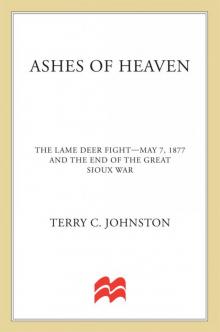 Ashes of Heaven (The Plainsmen Series)
Ashes of Heaven (The Plainsmen Series)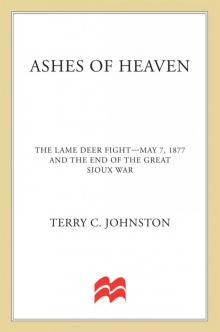 Ashes of Heaven
Ashes of Heaven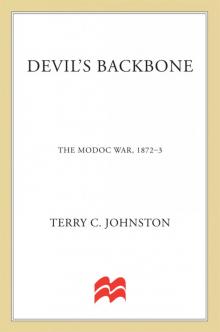 Devil's Backbone: The Modoc War, 1872-3
Devil's Backbone: The Modoc War, 1872-3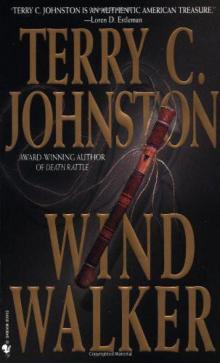 Wind Walker tb-9
Wind Walker tb-9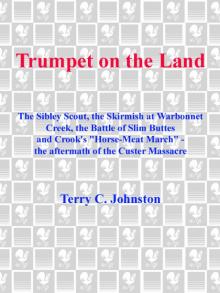 Trumpet on the Land
Trumpet on the Land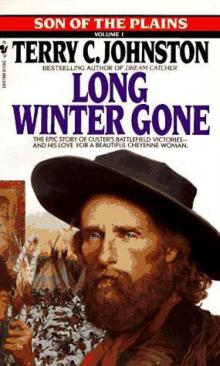 Long Winter Gone sotp-1
Long Winter Gone sotp-1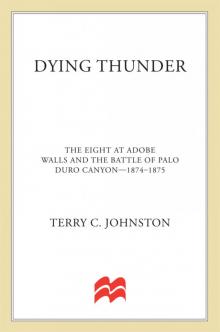 Dying Thunder
Dying Thunder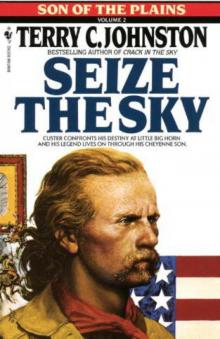 Seize the Sky sotp-2
Seize the Sky sotp-2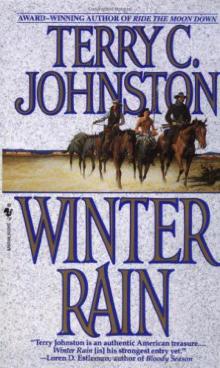 Winter Rain jh-2
Winter Rain jh-2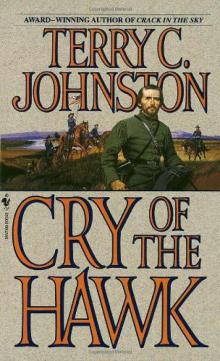 Cry of the Hawk jh-1
Cry of the Hawk jh-1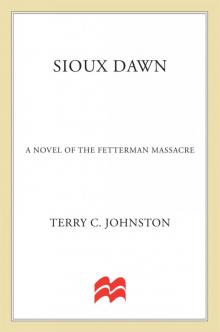 Sioux Dawn, The Fetterman Massacre, 1866
Sioux Dawn, The Fetterman Massacre, 1866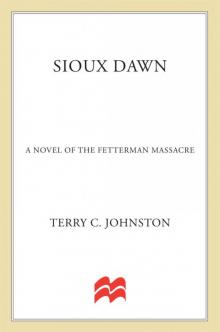 Sioux Dawn: The Fetterman Massacre, 1866 (The Plainsmen Series)
Sioux Dawn: The Fetterman Massacre, 1866 (The Plainsmen Series)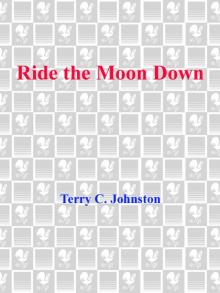 Ride the Moon Down
Ride the Moon Down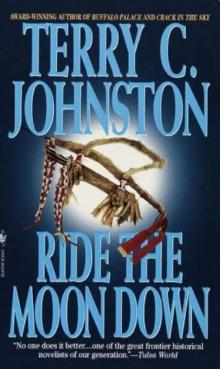 Ride the Moon Down tb-7
Ride the Moon Down tb-7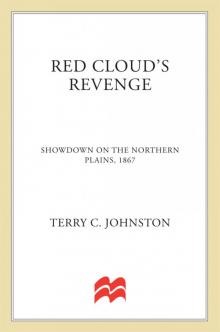 Red Cloud's Revenge
Red Cloud's Revenge Wind Walker
Wind Walker